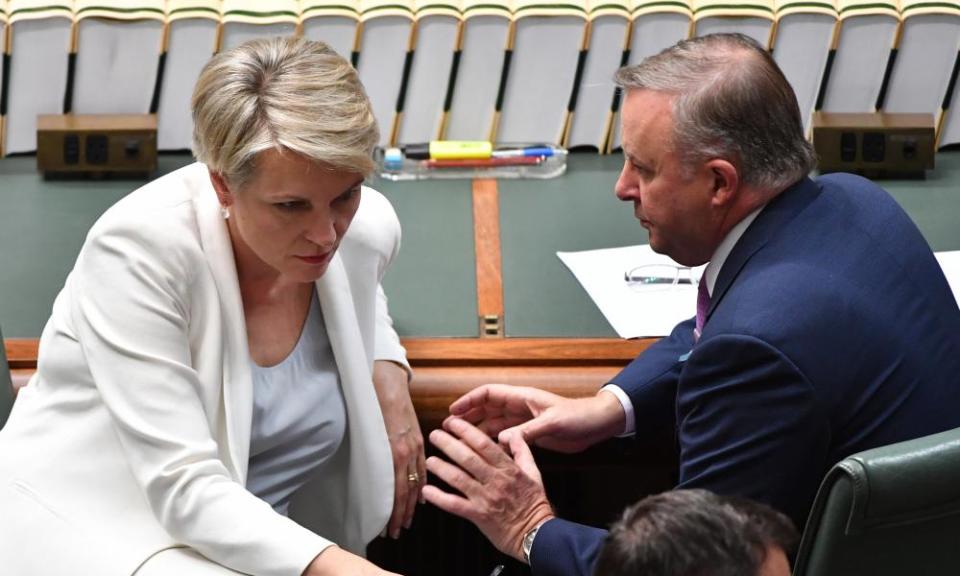Labor agrees with Coalition to redirect education funding to disaster relief

Labor has done a deal with the Morrison government to pass legislation redirecting education infrastructure money to disaster relief despite significant objections from the education spokeswoman, Tanya Plibersek.
The opposition made the decision to sign on to the emergency response fund in a special shadow cabinet meeting on Wednesday night, which also considered Labor’s stance on the free trade deal with Indonesia.
But Guardian Australia understands Plibersek objected, and concerns persist within the caucus that the decision will blunt Labor’s ability to pursue the Coalition over cuts to education funding.
Labor MPs, including the former research minister Kim Carr, have expressed concern that the redirection will deliver a significant blow to investment in research infrastructure.
Shadow cabinet’s decision to back the fund was not conveyed to the caucus, which met on Thursday morning. The shadow minister for emergency management, Murray Watt, revealed Labor’s position in the Senate shortly after the caucus meeting.
Related: Labor defends $1.2bn private school package it previously called a 'slush fund'
The Morrison government’s emergency response fund bill abolishes the $3.9bn education investment fund and redirects it to future emergency response and natural disaster recovery. In return for Labor’s support, the government has allocated an additional $50m per year to Tafe.
Carr declared in September that Labor cooperating in shutting down a dedicated national research infrastructure fund would be a bad idea at any time, “and to shut it down at this particular time is to court disaster”. He has circulated a paper to colleagues arguing forcefully against redirecting the funds.
Labor established the education fund in January 2009 to provide dedicated ongoing capital funding for tertiary education and research infrastructure. The Coalition has wanted to abolish it since 2014, and has stopped payments from the fund.
The government said first it would redirect the money to the national disability insurance scheme special account – but that proposition failed in the Senate.
Related: Naplan results 2019: year 7 and 9 writing skills have declined
Plibersek and Carr’s opposition to abolishing the fund in the 45th parliament was supported by the university sector. In September 2017 the Group of Eight chief executive, Vicki Thomson, told a Senate inquiry abolishing the fund “will critically undermine the next decade of Australian research”.
The Universities Australia deputy chief executive, Catriona Jackson, said it would “be bad for our universities, bad for the economy – with international education our third biggest export earner – but most of all it would be bad for the students that will chart the nation’s future”.
Watt moved opposition amendments on Thursday that reflected Labor’s deal with the government – to increase the quantum of the emergency response fund and lift the amount it can pay out each year from $150m to $200m, with the extra $50m to be spent on “disaster preparedness and mitigation infrastructure”.
The Greens expressed strong objections to the funding redirection during the short, gagged Senate debate. The Tasmanian independent Jacqui Lambie blasted the deal, characterising it as “pretty pathetic”.
“I can get more out of the government with just one of me than all of you put together,” Lambie declared.
The Greens senator Mehreen Faruqi said the $50m was “measly” and blasted Labor, saying it “used to be the party of public education”.
The government leader in the Senate, Mathias Cormann, thanked the opposition for its “constructive engagement” on the bill. He said an extra $50m would be given “to establish a $100m TAFE revitalisation grants program in partnership with the states”, with 50/50 funding from the states.
The legislation passed on Thursday morning.

 Yahoo News
Yahoo News 